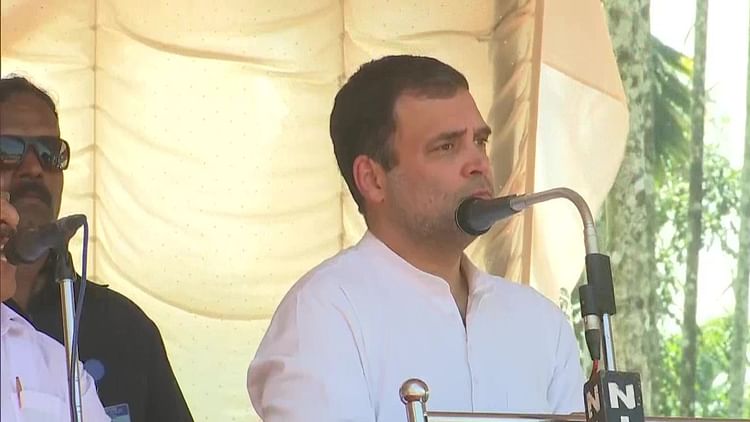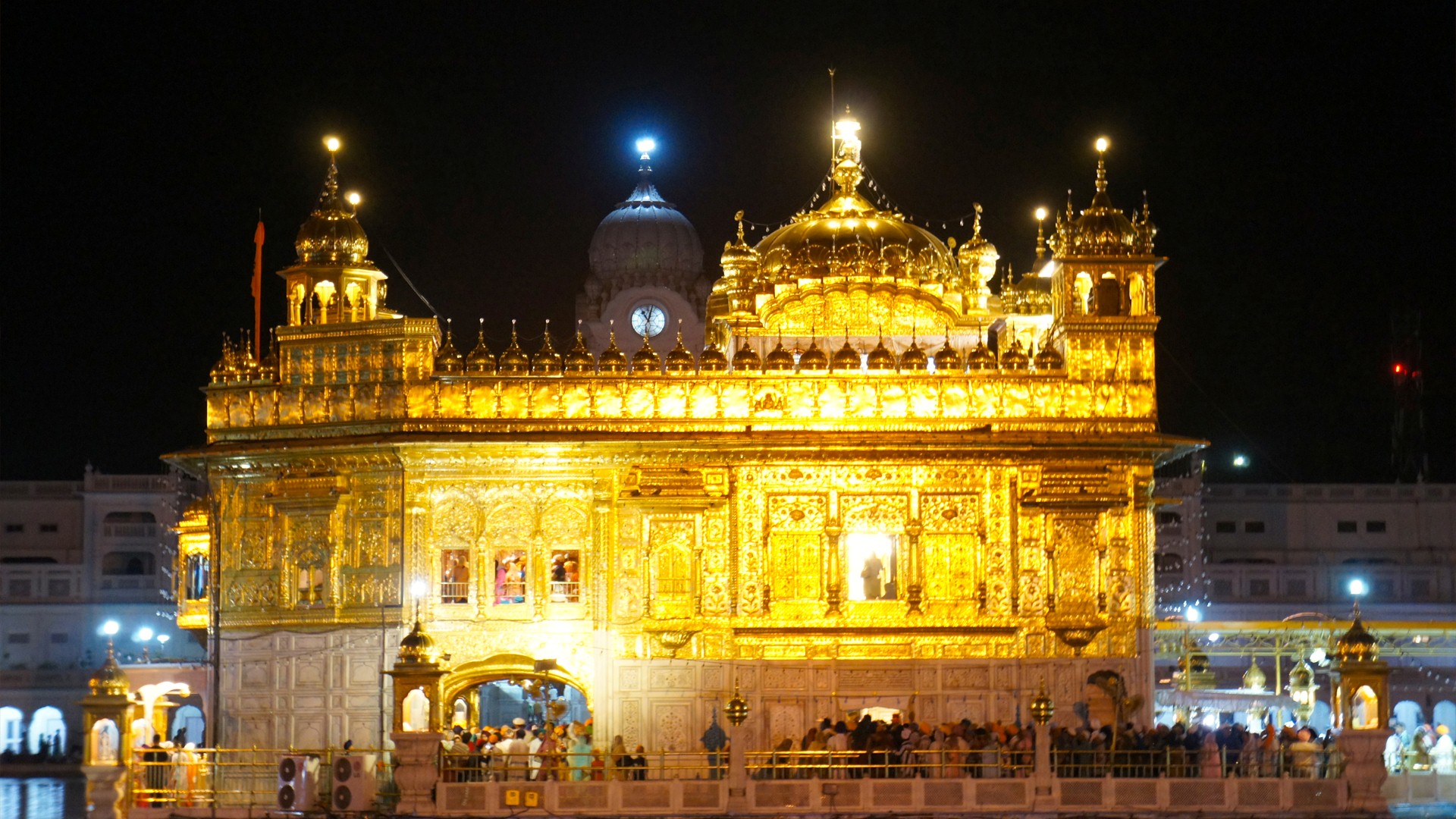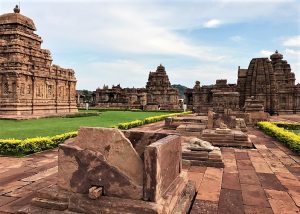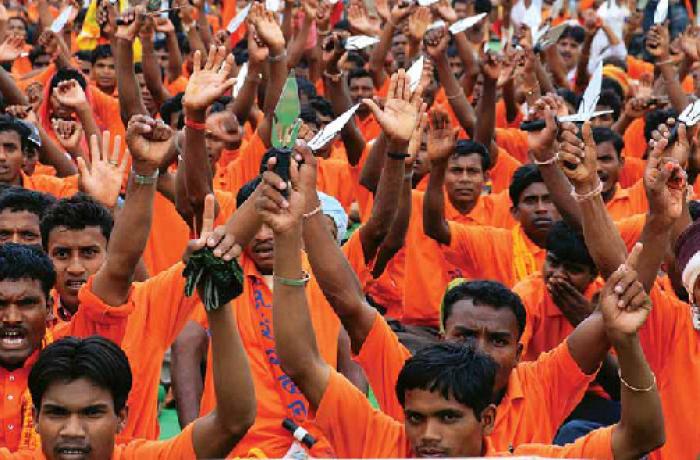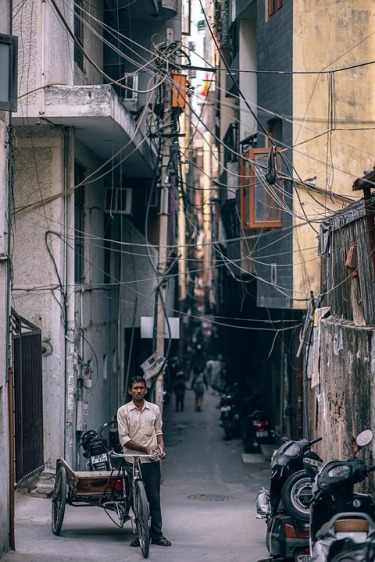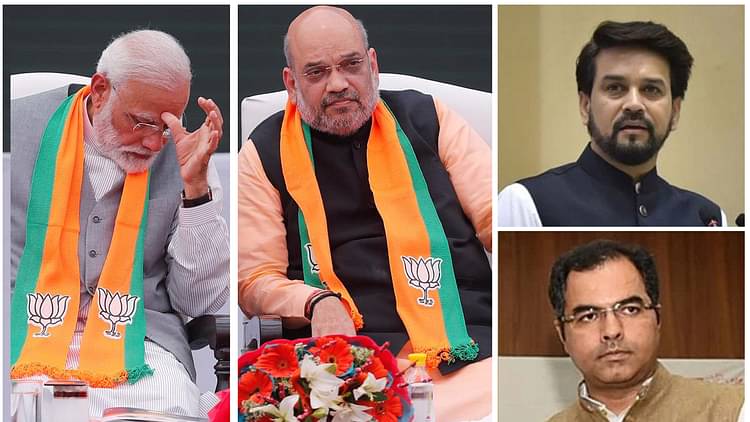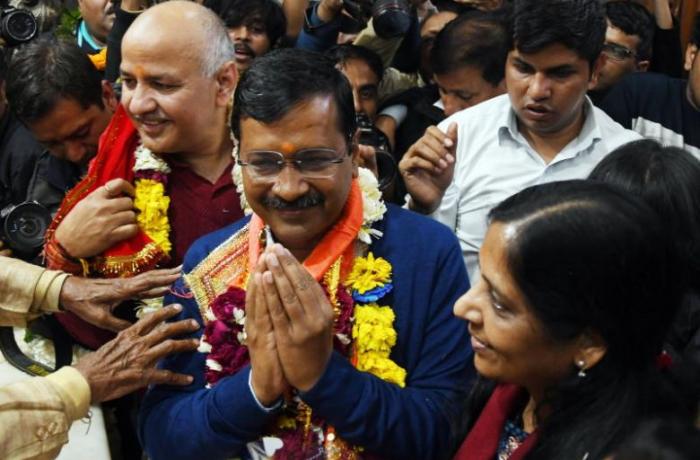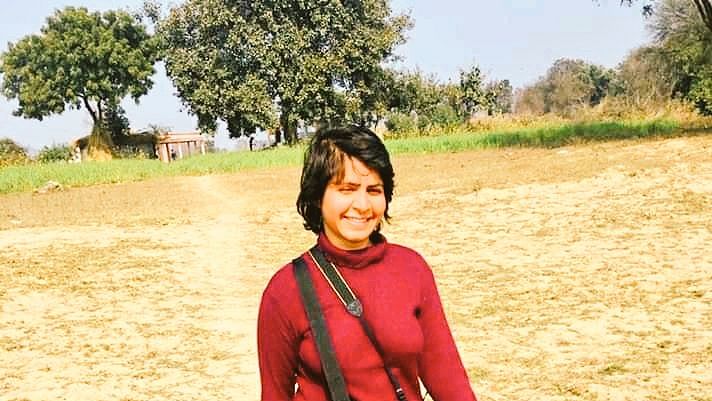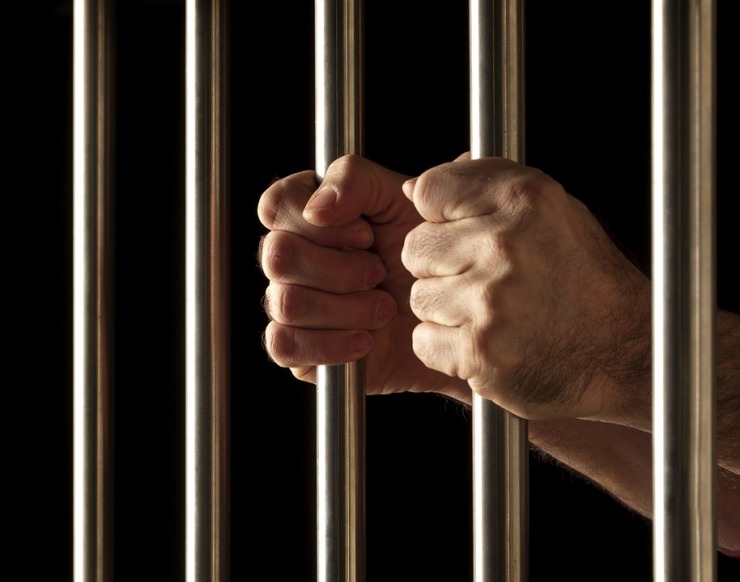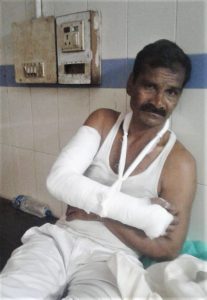Godse, Modi believe in same ideology, says Rahul Gandhi
Congress leader Rahul Gandhi on Thursday compared Mahatma Gandhi assassin Nathuram Godse with Prime Minister Narendra Modi, saying both believed in the same ideology Congress leader Rahul Gandhi on Thursday compared Mahatma Gandhi assassin Nathuram Godse with Prime Minister Narendra Modi, saying both believed in the same ideology. Rahul Gandhi, at an anti-CAA rally, launched a scathing attack on Modi and said he was making Indians to prove that they are Indians. Addressing participants at "Save the Constitution" march at Kalpetta in Wayanad, his Lok Sabha constituency on Martyr's Day, Gandhi said there was no difference between Godse and Modi. "Today, an ignorant man is trying to challenge Gandhi's ideology. He is creating an atmosphere of hatred. The ideology is same. Nathuram Godse and Narendra Modi, they believe in the same ideology. There is no difference except that Modi does not have the guts to say he believes in the ideology of Godse," the Wayanad MP said. Attacking the Prime Minister on the new Citizenship Law, Gandhi questioned Modi and asked who was he to ask Indians to prove that they were Indians. "Indians are being made to prove that they are Indians. Who is Narendra Modi to decide who is an Indian. Who gave Modi
Goa church body booked for misusing children at rally
Officials of a Church-backed NGO and a human rights’ body, which had organized an anti-CAA rally in Goa, have been booked under sections of the Goa Children’s Act and the Juvenile Justice Act. The First Information Report filed on January 30 at the Goa Police Women station in Panaji states that officials of Council for Social Justice and Peace and the Goa chapter of the National Human Rights Organisation had “exposed children to political ideology and aggressive language thereby subjecting the children to psychological abuse and not providing safe environment.” The Church-backed council headed by Father Savio Fernandes co-organized the rally on January 24 at Margaon in southern Goa. The rally opposed the Citizenship Amendment Act, National Citizenship Register and National Population Register the federal government insists on implementing. The federal coalition government is led by the pro-Hindu Bharatiya Janata, which also rules Goa state. Investigating officer Inspector Sudiksha Naik has filed the FIR under relevant sections of the Goa Children’s Act and Juvenile Justice Act. The FIR was filed following a complaint by Goa-based child rights NGO Stop Child Abuse Now (SCAN), which alleged that the organizers of the event had violated child rights by exposing minors to political ideology and aggressive derogatory language.
Hindu Extremists in Southern India Beat Christian Children, Accuse Worshippers
Hindu extremists in southern India who beat Christian children during worship on Jan. 19 and then filed a police complaint against the congregation left them with a warning. “If we hear that you stepped out of your homes and told anybody about this, we will set your homes on fire and will burn you alive,’” some of the 20 assailants told Christians gathered for worship on the terrace of a home in Malasamudra village, Karnataka state, according to those present. The Christians had begun worship at 7 a.m. when the radical Hindus came up the stairs to the terrace, unnoticed. Soon the small congregation saw the intruders taking photos and videotaping them, said Mary Bellary, who along with her husband Hanumanthappa Bellary was hosting the worship. “They flashed camera lights at children, and we requested them to please go and not disturb the prayers,” Mary Bellary said. “But they continued taking pictures, videotaping us and passed comments, saying, ‘Look! Christians gathered here on the terrace to carry out conversions.”’ When Bellary and other women tried to stop them from taking video of the 12 children present, the intruders pushed them away, she said. The Christians asked them to leave, and the intruders put their
Hindu radical ‘anoints’ Christians with water and cow dung, as if they were Dalits
Such a "blessing" is a typical purification ritual used against untouchables, deemed impure from birth. In Uttar Pradesh, ultra-nationalists are targeting 30 places of "forced conversions". Whilst “Conversions do take place,” and it is “a right,” said a priest. People “leave behind witchcraft and the worship of evil spirits.” A man chasing a group of Christians to “anoint” them with water mixed with cow dung in order to "purify" them from their faith is the prime character in a video posted yesterday on social media. The incident, which occurred in Machilipatnam Mandal, Krishna district, Andhra Pradesh, has been viewed thousands of times. For Sajan K George, president of the Global Council of Indian Christians (GCIC), this is but latest episode of discrimination against India’s Christian minority. “This,” he told AsiaNews, “is the pathetic situation in which Christians live, dishonoured in public because they praise the name of Jesus.” "Water and cow dung are usually used for purification rituals, especially if Dalits touch something making the place or object ‘impure’,” George explained. "Below the video, someone wrote that ‘Christian pastors came to foist their propaganda and conversions but were chased away by throwing water mixed with dung on their faces." “In Telugu-speaking states (Andhra Pradesh and Telangana), such an action is
Christians humiliated on streets in Andhra Pradesh
In Machilipatnam Mandal, Andhra Pradesh, an offensive video of a man chasing a group of Christians in an attempt to purify them from their faith using water mixed with cow dung dragged attention on social media on February 7. Speaking to AsiaNews, Sajan K George, president of the Global Council of Indian Christians (GCIC), called this as an latest episode of discrimination against Christians in the country "This is the pathetic situation in which Christians live, dishonoured in public because they praise the name of Jesus," Geroge said. According to George, "Water and cow dung are usually used for purification rituals, especially if Dalits touch something making the place or object 'impure'." The video was posted with a comment that said, "Christian pastors came to foist their propaganda and conversions but were chased away by throwing water mixed with dung on their faces," and it was viewed thousands of times on the Internet. According to ADF India, in 2019 alone, over 300 incidents of mob attacks against Christians were reported of which only 40 were prosecuted by police.
Communal venom did not help BJP in Delhi polls; Modi-Shah duo’s hyper-nationalism loses
Will the BJP tone down its communal rhetoric or convince itself that the party has to indulge in more of the same? Few would have expected the Aam Admi Party (AAP) to repeat its stellar performance of five years ago when it won 67 out of the 70 Delhi assembly seats. But the fact that it is touching the 60-seat mark and succeeded in retaining its well over 50 per cent vote share shows that there has been very little diminution of its political appeal. However, it is also undeniable that the BJP put up a creditable fight, running the AAP close in a number of seats. There has also been an eight per cent jump in the BJP’s vote share from 32.8 per cent in 2015 although it has dropped sharply from the 56.9 per cent which the party received in last year’s parliamentary polls. What the outcome underlines, therefore, is the differentiation which the voters are making between a state election and a national one. This propensity has also been evident in the three other assembly elections held recently, viz. in Haryana, Maharashtra and Jharkhand, where the BJP either failed to form a government or could do so only with an
Delhi: Christians happy for Arvind Kejriwal victory, a blow to Modi’s hatred
The anti-corruption party won 62 seats out of 70. Hindu nationalists get the other eight; the increasingly irrelevant Congress, nothing. Voters rewarded the winner for its social policies, which have increased access to schools and healthcare. Christian calls on the chief minister to include Christians in his administration. Arvind Kejriwal's landslide victory in Saturday’s Delhi[*] election is a blow to Prime Minister Narendra Modi's policies of hatred, local Christian community leaders told AsiaNews. The anti-corruption Aam Aadmi[†] Party (AAP) took 62 seats out of 70, giving its leader a third mandate as Delhi Chief Minister. The other eight seats went to the Hindu nationalist Bharatiya Janata Party (BJP). The Congress party, which hoped for a better result, was completely shut out. For Michael Williams, president of the United Christian Forum, "APA’s victory by an overwhelming majority clearly shows that the politics of polarisation and hatred have no room in the nation’s capital. Instead, “People need jobs, the economy needs revival, women need safety and minorities need reassurance.” In all these areas, Williams explained, the central government “is failing miserably. I hope that the rulers of India are able to align their ideology with the needs and concerns of citizens.” The Delhi vote was held in a climate of heated
No ‘Padayatra’ without permission in Uttar Pradesh, draconian conditions for bail
On Wednesday the SDM court in Ghazipur ordered the arrested to be released on furnishing personal bonds of ₹2.5 lakhs and two sureties by gazetted officers for the same amount The 12 ‘Padayatris’ had undertaken a walk to the Mahatma Gandhi Memorial at Rajghat in New Delhi, starting from Gorakhpur. They wanted to spread the message of goodwill and communal harmony and talk to people on the way. They covered some 200 Kilometres between February 4 and February 11, when they were arrested by Ghazipur Police for the crime of walking without permission. And when their bail application was moved the next day, the SDM court-ordered stringent conditions and demanded that each of them submit bonds amounting to ₹2.5 lakh each besides producing two sureties of equal amount from two gazetted officers. The conditions are unusually harsh and are clearly designed to have a ‘chilling effect’ on the activists, who may well find fulfilling both the conditions difficult. When the activists expressed their surprise over their arrest and pointed out that they represented no political party or group, that they were merely talking about the need to maintain harmony in society and distributing literature to that effect, they were told that they needed the permission
Pastor arrested on false charges in Uttar Pradesh
A small house church pastor and his family in Kanpur, Uttar Pradesh were taken into police custody for a crime that they did not commit and questioned until 1:30 in the morning. The incident took place on February 9, after the members of the Bajrang Dal broke into pastor Sanjay Raj Singh's house church and disturbed the Sunday worship service. According to pastor Singh, the radicals manhandled the congregation and verbally abused the Christians. International Christian Concern (ICC) reported that the radicals were carrying Hindu idols with them. When they entered the house church, they broke the idols on the floor. "They started to film the broken idols that they dropped as evidence that I had destroyed the idols," pastor Singh told ICC. "The angry mob came prepared to accuse me of destroying the Hindu idols. That is the reason they brought these idols and dropped them where the worship was going on." "They forcibly snatched the car keys and did not allow us to leave the house for several hours," pastor Singh continued. "When the police came, they also claimed that I used the car for conversion activities." When the police arrived at pastor Singh's house, they arrested the pastor and his family on false charges and
Church Decimated after Upper-Caste Hindus Stir Hostilities in Andhra Pradesh, India
Christians too fearful to show up after attacks. Attacks and harassment of a house church in southern India have decimated the 40-member congregation and left the pastor injured and demoralized. Pastor Eswara Rao Appalabattula on Jan. 27 pleaded with about a dozen local residents to stop building a wall meant to block people from attending worship services at his home in L.B. Patnam village, Andhra Pradesh. Led by a local Hindu extremist, the group attacked him, breaking his hand, he said. “They wanted to build a wall right in front of the church and ban us from using the path,” Pastor Appalabattula told Morning Star News. “I pleaded with them to not do so. But the group of at least six neighbors, both male and female, punched me in my stomach several times and pushed me to the floor.” They picked up a wooden pole and started beating his hands repeatedly with it, he said. “I was lying there on the floor screaming for help,” he said. “My wife came running and begged them to stop beating me – it was traumatic.” The attack topped a month of hostilities and years of opposition against the pastor and his wife, who are in their 60s,





